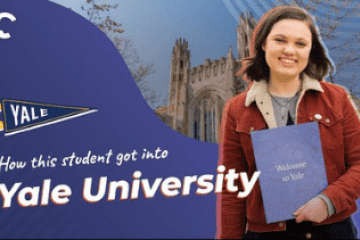A NEW era of collaboration and mergers in higher education has begun, vice chancellors said this week.
The University of Bath, one of the UK's top research universities, and the University of the West of England are planning to merge in anticipation of Sir Ron Dearing's inquiry into higher education due out in July and in the light of the new Labour Government. Other institutions could follow if, as expected, Dearing recommends closer links.
A "University of Bath and the West of England" could be forged from the two institutions by August 1998. A joint statement from both vice-chancellors to all staff said that they believed that Sir Ron would recommend greater collaboration between institutions.
They say: "The Higher Education Funding Council for England has already announced plans to develop its regional structure." Staff were also told: "Expect the new Labour government to encourage HEFCE to take a more interventionist planning role."
Both institutions have stressed that talk of an out-an-out merger is "premature", although the UWE vice chancellor, Alfred Morris has already outlined "his vision of a university similar to some American or Scottish Institutions". Bath vice chancellor David VandeLinde, who has already been earmarked by both institutions' governing bodies as vice chancellor of the proposed new university, said that "there are no small universities of significance".
The news has sparked speculation throughout the sector. Tony Higgins, chief executive of the University and Colleges Admissions service said: "UCAS suspects Dearing will be talking about regionalisation and collaboration. I suspect he will find that there is over-provision of some courses and too many options. I've heard rumours that at least one other pair of institutions plan to merge."
Frank Gould, vice chancellor of the University of East London, and a vociferous champion of higher education mergers agreed: "It's good news. Greater collaboration is certainly the order of the day. It makes sense. There is an enormous reluctance around the country to even discuss mergers, but I do know that some vice chancellors are coming closer and closer towards it."
The University of East Anglia, one of the first to be hit by rumours, is said to be planning link-ups with local institutions to create a "University of Suffolk".
But a UEA spokeswoman said: "We are developing a regional federation of colleges, which we are working more closely with," she said. "Last summer we made Ipswich College into University College Suffolk, part of UEA."
Other institutions rumoured to be moving cautiously together are the Universities of Brighton and Sussex, both based near Brighton and literally across the road from each other. They already cross-reference potential students to each other's courses. Sussex's vice chancellor sits on Brighton's board and Brighton has an innovation centre on Sussex's campus.
But a spokesperson said: "There are a number of projects where we work well together, and are happy to do so. We've no plans to merge however."
Other possibilities include the Universities of Humberside and Hull, separated only by a hedge.
Rob Cuthbert, assistant vice chancellor at the University of the West of England, said that potential mergers elsewhere would depend entirely on local circumstances. "The solution in the West of England is not necessarily going to work in other areas," he said.
Both Bath and UWE believe that they could blend well together, said Mr Cuthbert. Bath concentrates on science, technology and languages and the West of England has strengths in humanities and law. West of England has scored well in teaching quality assessments, and Bath was rated seventh in the THES research assessment exercise rankings.
A CVCP spokeswoman cited the committee's submission to Dearing. "We are keen to pioneer partnerships and collaboration," she said.
"We think that universities should be funded in a way that supports and encourages collaboration and sharing opportunities for research as well as teaching. Local and regional partnerships are particularly important. We expect Dearing to favour this."
Register to continue
Why register?
- Registration is free and only takes a moment
- Once registered, you can read 3 articles a month
- Sign up for our newsletter
Subscribe
Or subscribe for unlimited access to:
- Unlimited access to news, views, insights & reviews
- Digital editions
- Digital access to THE’s university and college rankings analysis
Already registered or a current subscriber?






